Welcome to thoughtful, organic beauty
Hello Joyous is an organic, plant-based, sustainable beauty brand here to bring more joy to your day.
Constipation is a very common problem among all ages, both young and old and various life stages such as pregnancy. When I was nutrition consulting, nearly every other client would complain of constipation but fortunately, it was fairly easy to correct with diet and lifestyle changes when medications and underlying health conditions were ruled out. I, too, was chronically constipated throughout my teenage years and into my early twenties. When my daughter had a bout of constipation, we reactly quickly with natural solutions so it didn't become a chronic problem.

This is why I've put together a list of natural solutions that can provide relief and prevent any future constipation, so you don't have to watch your little one suffer.
If you are a grown-up reading this and you stumbled across my blog, because you too, are constipated, keep reading because there are tips that can apply to you too. If you're a parent reading this and your child is in pain or uncomfortable, then I feel for you and I hope these solutions help you.
Since there are different solutions for babies, toddlers and children, I will simply outline all the solutions and then you can use your discretion based on your child's age. I would also recommend that you seek the advice of a natural healthcare practitioner or family doctor if the problem cannot be corrected with the solutions I have provided in case there is something more serious going on.
9 Ways To Prevent Constipation Naturally In Children
1. Move it
One of the key factors that causes constipation is a lack of exercise. You've likely noticed this for yourself if you sit all day and don't move your body. I remember when my daughter was just learning to walk, there were days she was more sedentary or if it was raining and she didn't get a chance to go out to the playground. After a day of less activity, she would occasionally have trouble with pooping.
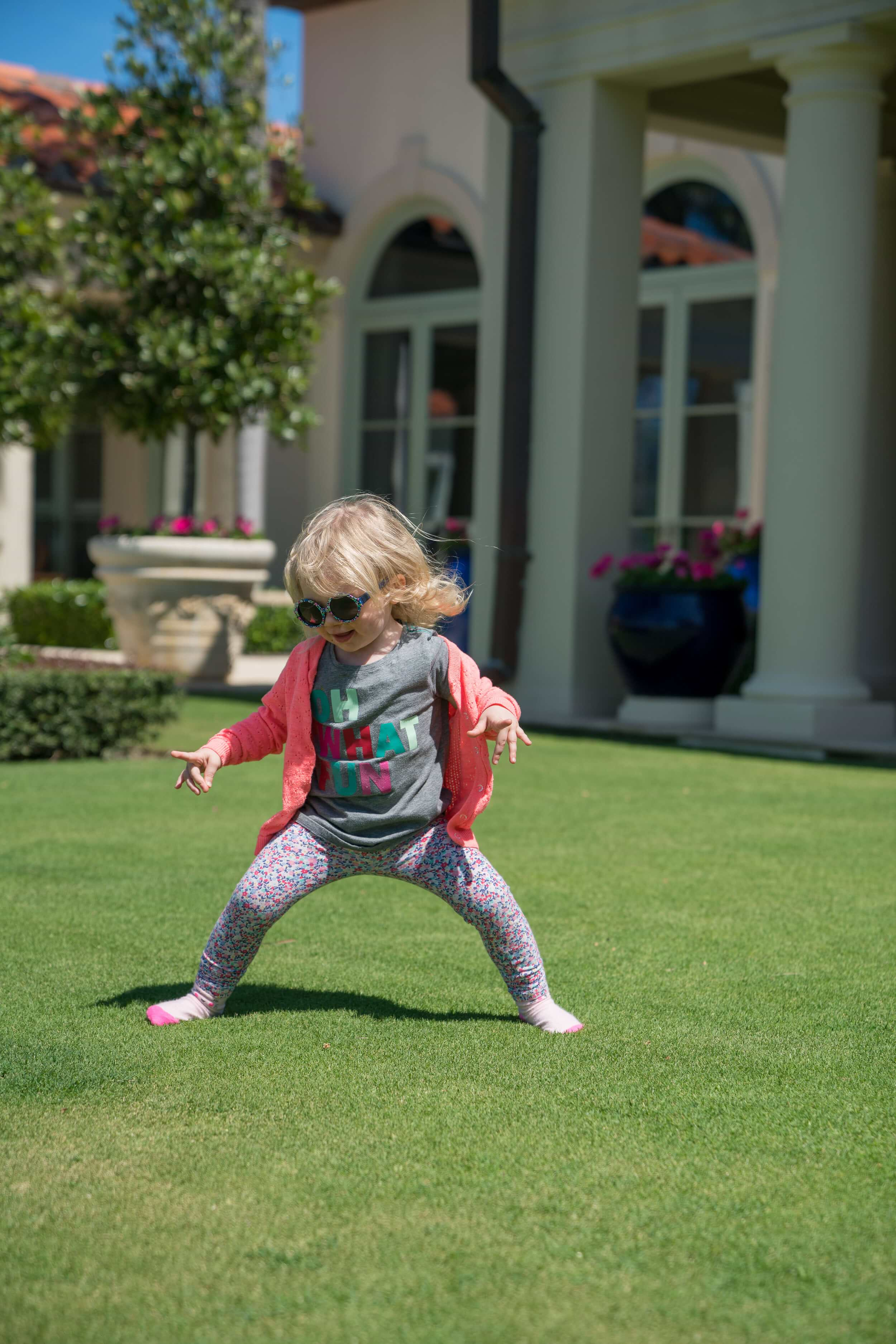.jpg)
A simple solution that worked most of the time was to get her excited and chase her around. The increased circulation gets your blood flowing and helps to stimulate natural contractions in the large intestine. Typically within 20-25 minutes, she'd be pooping.
Health Canada recommends that your child exercises a minimum of 60 minutes every day.
Whether that's going for a walk, dancing around the living room or going to the playground – it doesn't really matter! What matters is that your child is moving! I'm a big fan of yoga for helping to reduce constipation. If your child is old enough, here are some great yoga poses to ease constipation.
2. Eat fibre (the right kind!)
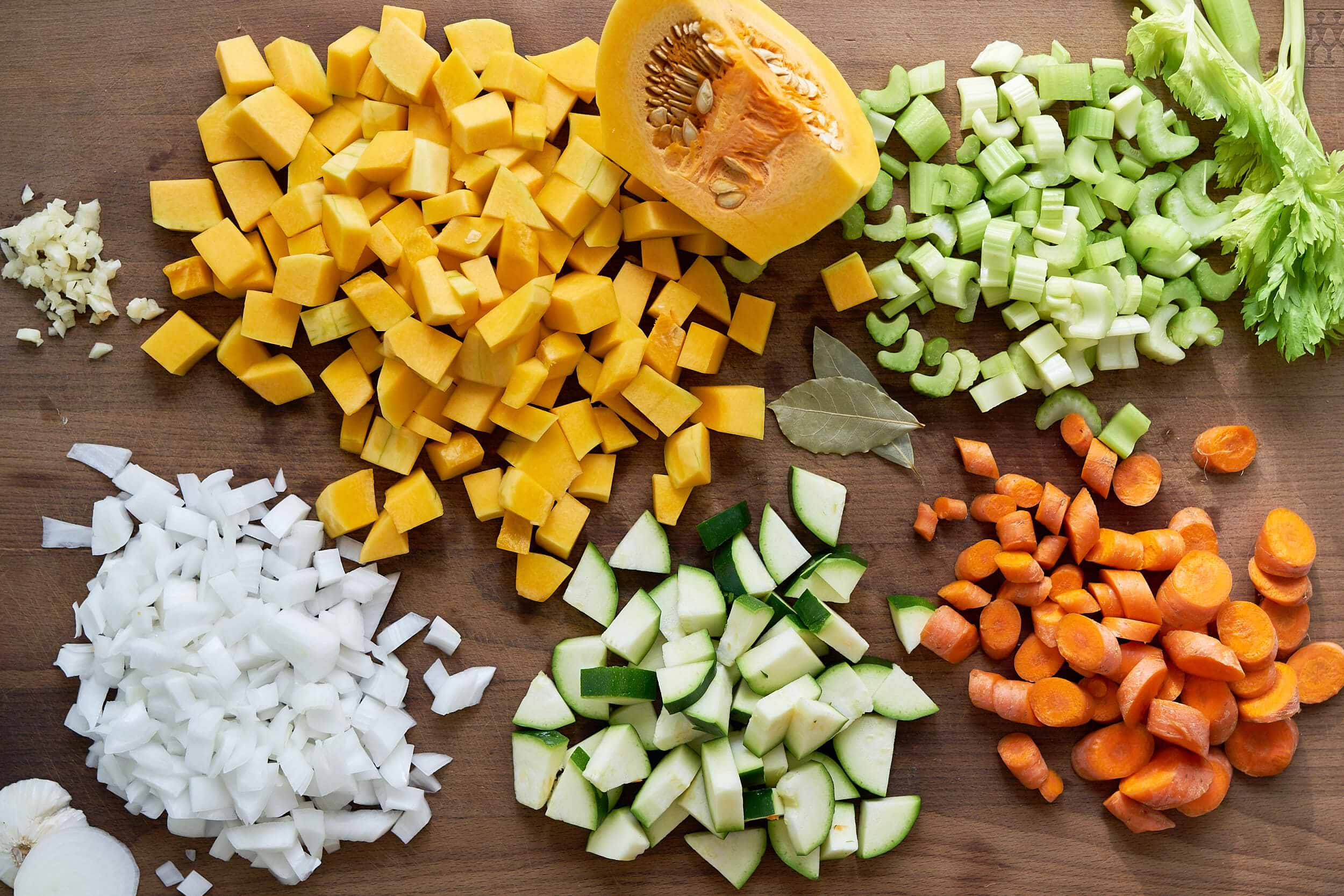
A lack of fibre in the diet is a huge culprit for constipation. Research has shown that a lack of plant-based foods in a child's diet correlates with constipation. Eating more plant foods is a quick way to help you naturally eat more fibre!
Fibre works by stimulating contractions of the bowels which helps to move food throughout the digestive tract. However, not all fibre is created equal.
Some foods that are high in fibre MUST be consumed with a lot of liquid, otherwise they can promote constipation.
Chia , psyllium, flax and bran are foods that require a lot more hydration if you are consuming them. That's not always the easiest thing to do with a baby or a toddler. So if you do add chia to your child's diet, just make sure you're adding it to something hydrating like a smoothie.
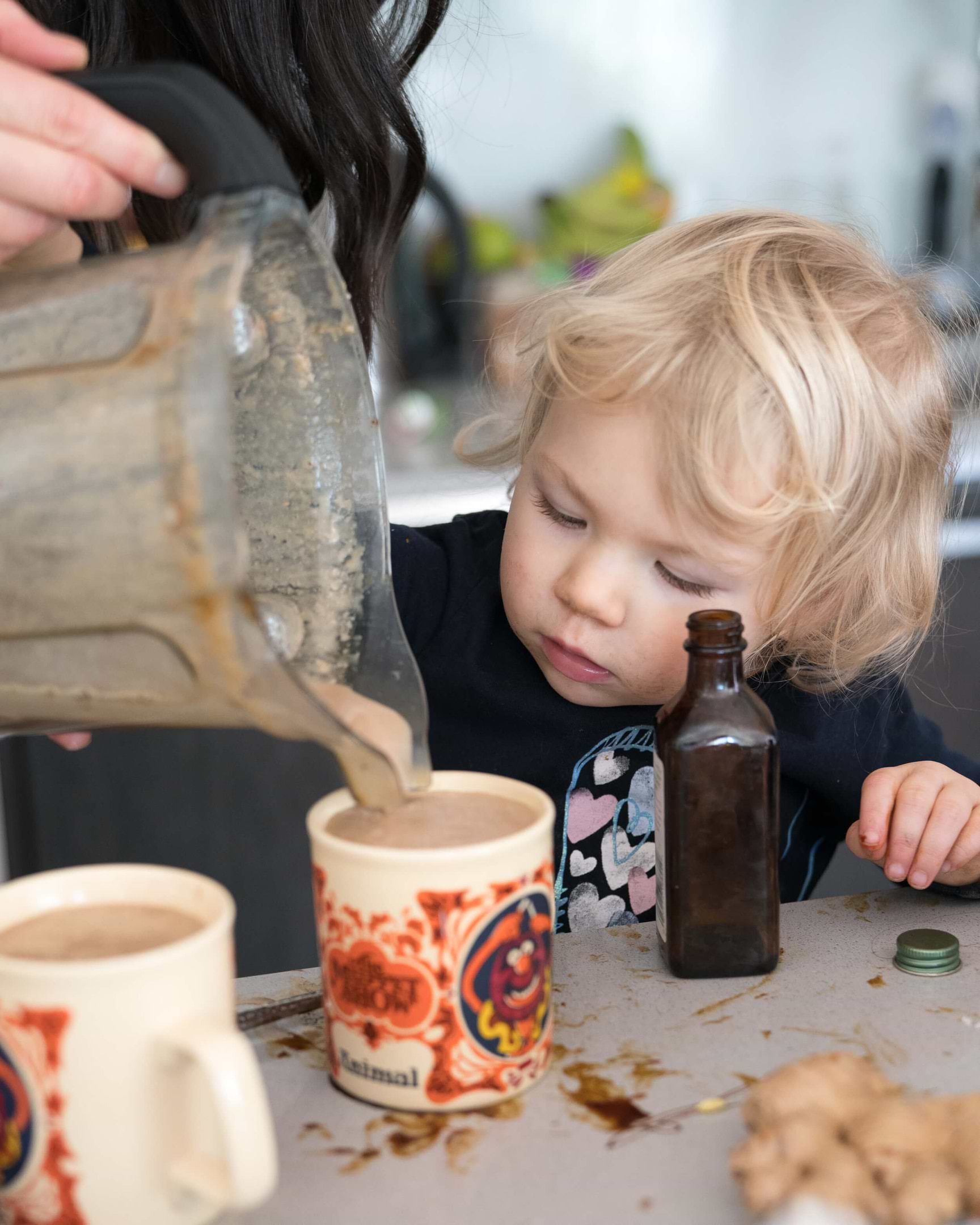
I recommend you provide a variety of fruits (pear, grapes, plums, apple with peel, kiwifruit, prunes, papayas, berries and apricots) and vegetables (broccoli, cauliflower, peas, brussel sprouts, cucumber, zucchini, sweet potato and squash) at every single meal and snack.
This way, you'll ensure your child is getting lots of soluble and insoluble fibre. Of course. beans, lentils, whole grains like quinoa and oats are also a great source of fibre.
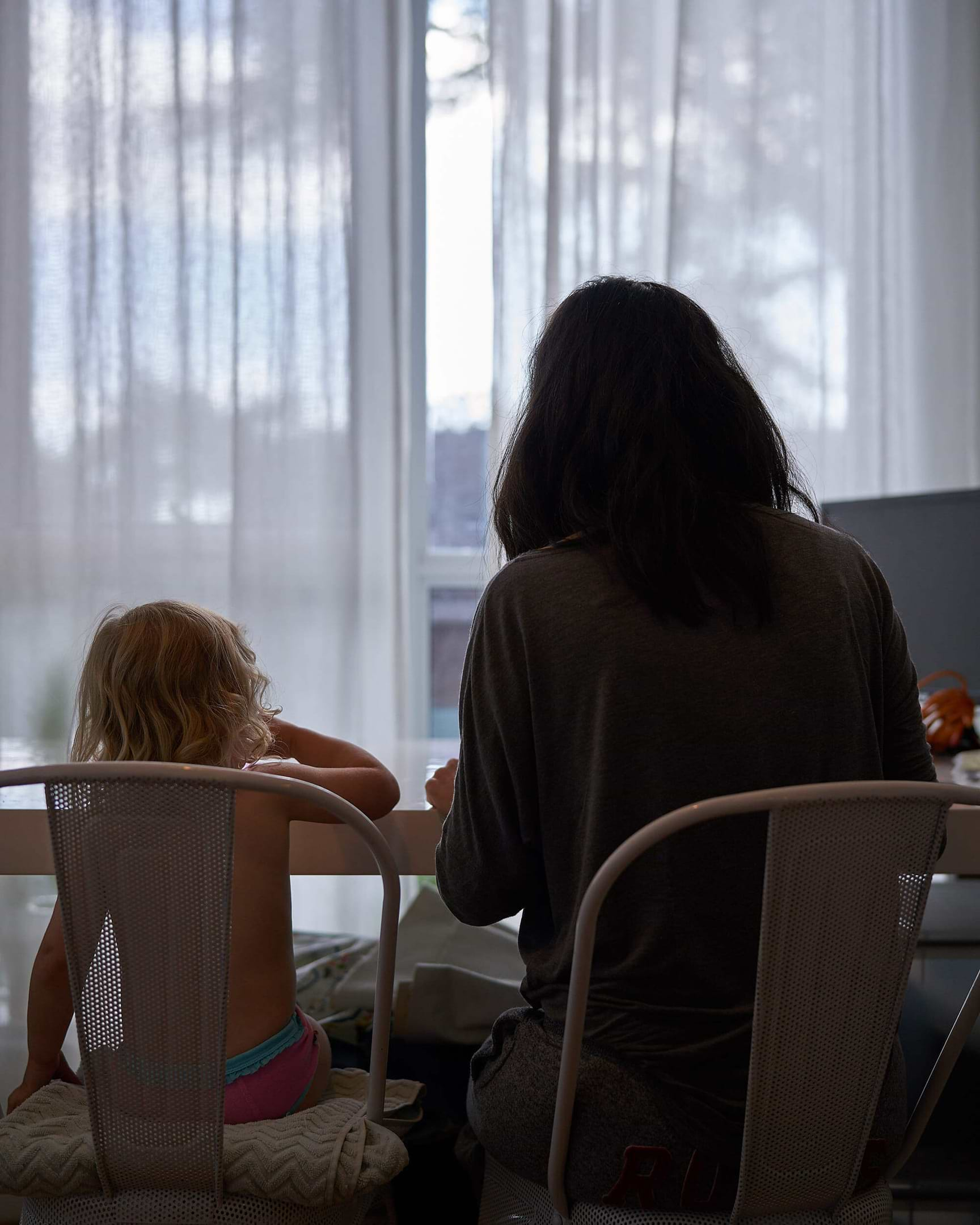
Some of Vienna's favourites meals and snacks that are rich in fibre and nutrients are:
3. Hydrate (but not just with water)
Building on my previous point, both types of fibre, soluble and insoluble fibre depend on water. Soluble fibre, like chia, absorbs water and becomes quite gelantinous while insoluble water like celery doesn't absorb water, but traps and retains water pulled from your intestines. This helps to move waste through the intestines. All foods have both insoluble and soluble, so either way, you need to drink water!
If you don't have enough water, even if you eat a lot of fibre, stools can still be hard and dry, causing constipation.
Beyond the obvious suggestion of drinking MORE water, make sure your child eats enough hydrating fruits and veggies on a daily basis such as: cucumber, pears, apples, sweet potato, avocado, berries, tropical fruits such as melons, pineapples and mango. This can really help to hydrate the whole body.
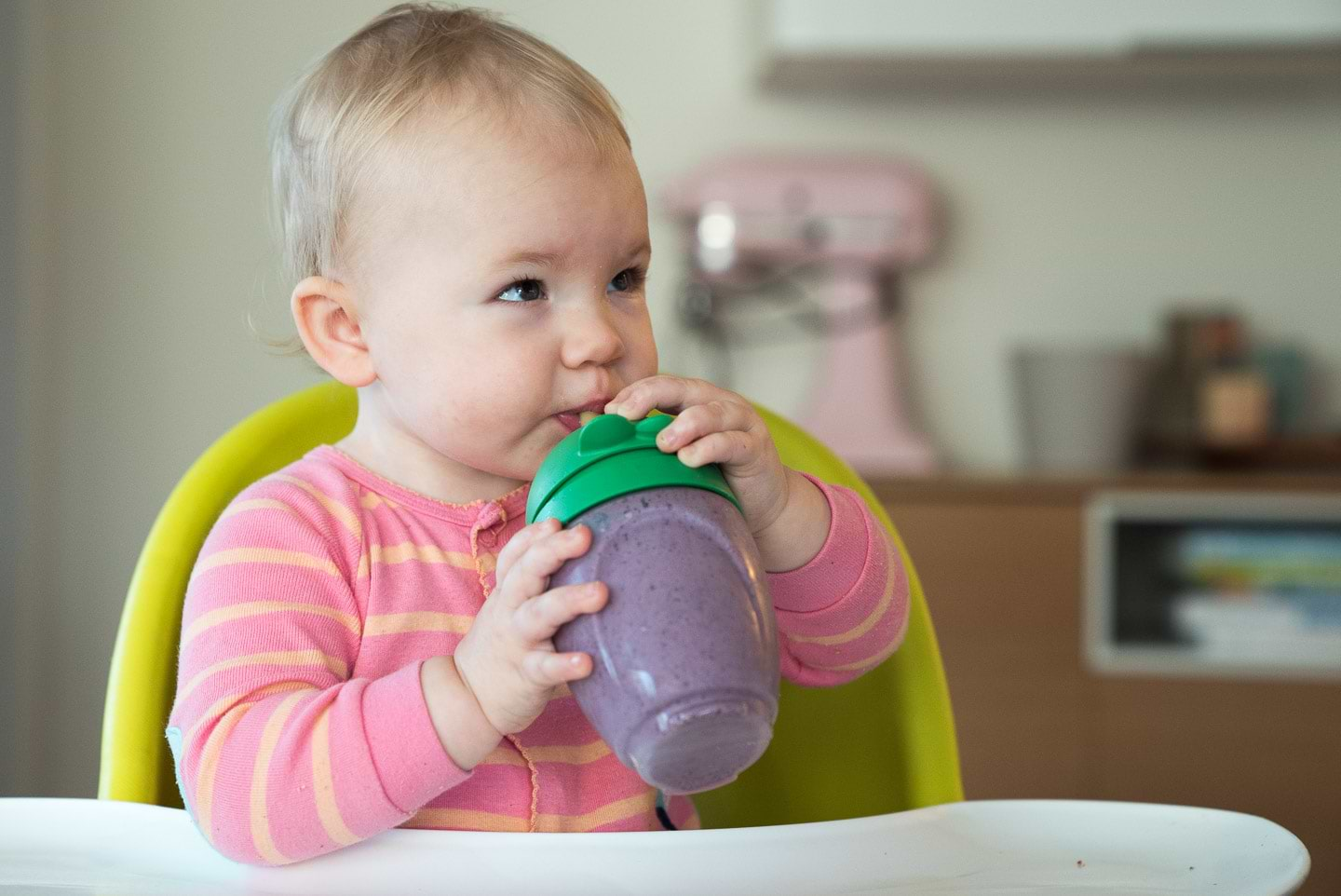
Offer water at every single meal and in between meals. A trick I use with Vienna to drink more water is I add a squirt of fresh lemon or I squeeze the juice from an orange into her water cup to give it more flavour.
She also LOVES sparkling water and will drink that up pretty quickly. We have a SodaStream which I prefer to most brands of bottled sparkling water because there's no added sodium if you're just using filtered water, unlike many store-bought brands.
4. Establish a routine
This point applies more to toddlers than older children or babies in diapers but it's super important, (especially when potty or toilet training) to establish a pooping routine without stress.
When we first started potty training Vienna, we'd ask her if she had to poop after every main meal. Then we'd have her sit on the potty for 5-10 minutes after every meal. Eventually she got into her own routine and that routine is still the same today.
Also, make sure you give them enough time to poop. If your child decides they have to poop right when they are leaving for school, rather than rushing them, allow them the time to poop. I know that sometimes it's totally inconvenient, but when nature calls, you've gotta listen :) Establishing healthy routines around pooping will help them be healthy poopers when they grow up!
5. Happy Pooping
Just like adults, children MUST be relaxed to poop. Whenever I sensed that Vienna was getting stressed out about pooping, I would get her to do an activity that relaxed her like painting! Usually by the time she finished painting she'd be in a more relaxed state to poop.
Of course painting isn't always available at the drop of a hat, but it's something I know she loves so I use this strategy even today when she's frustrated about something or bored. I ask her if she wants to paint or colour because I know it works to ground her.
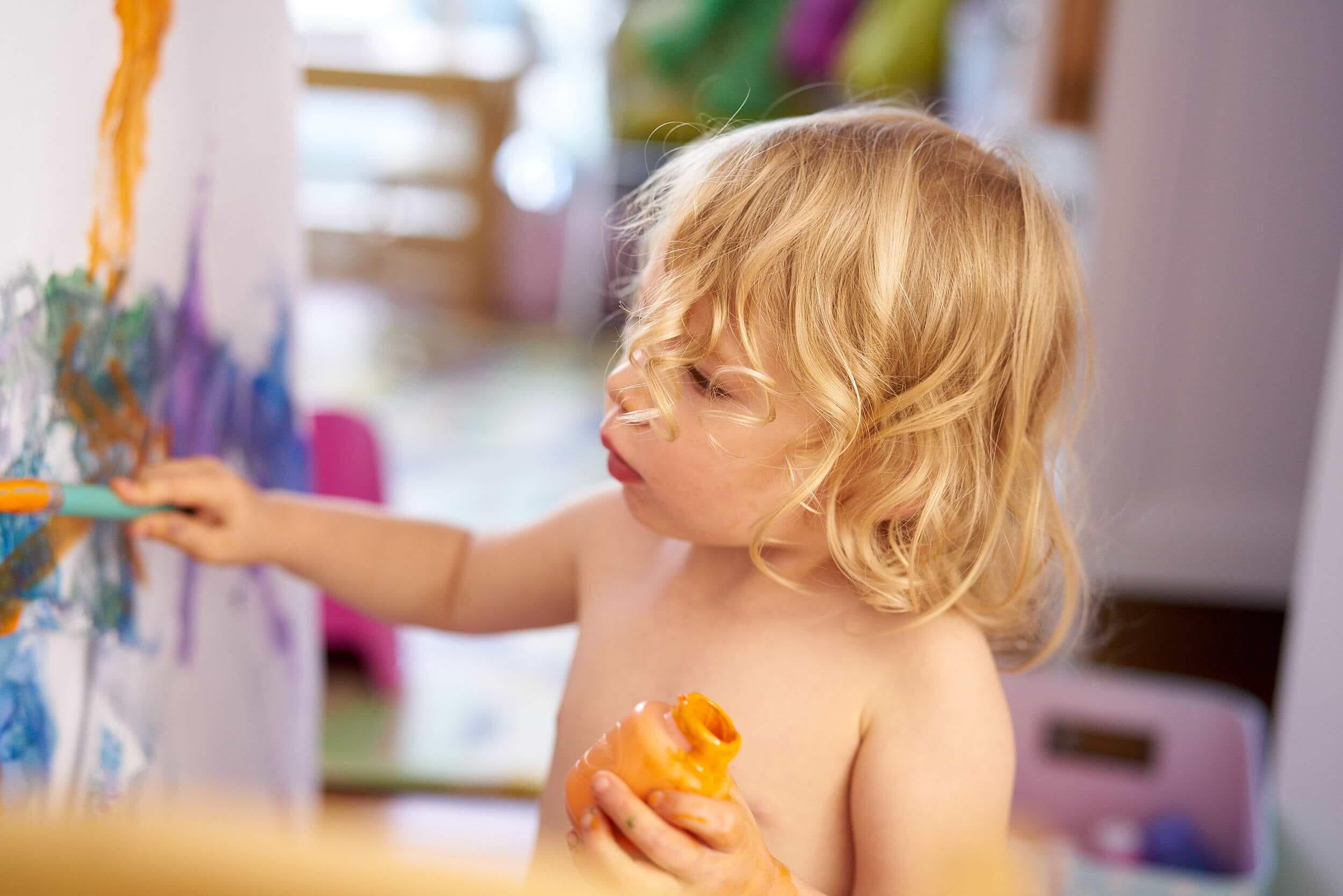.jpg)
Digestion cannot function optimally when the body is in a state of stress, so if you're stressed that your child is not pooping, do your best to not let them know you're feeling frustrated. Just do some deep breathing!
6. Eat Fermented (probiotic) foods
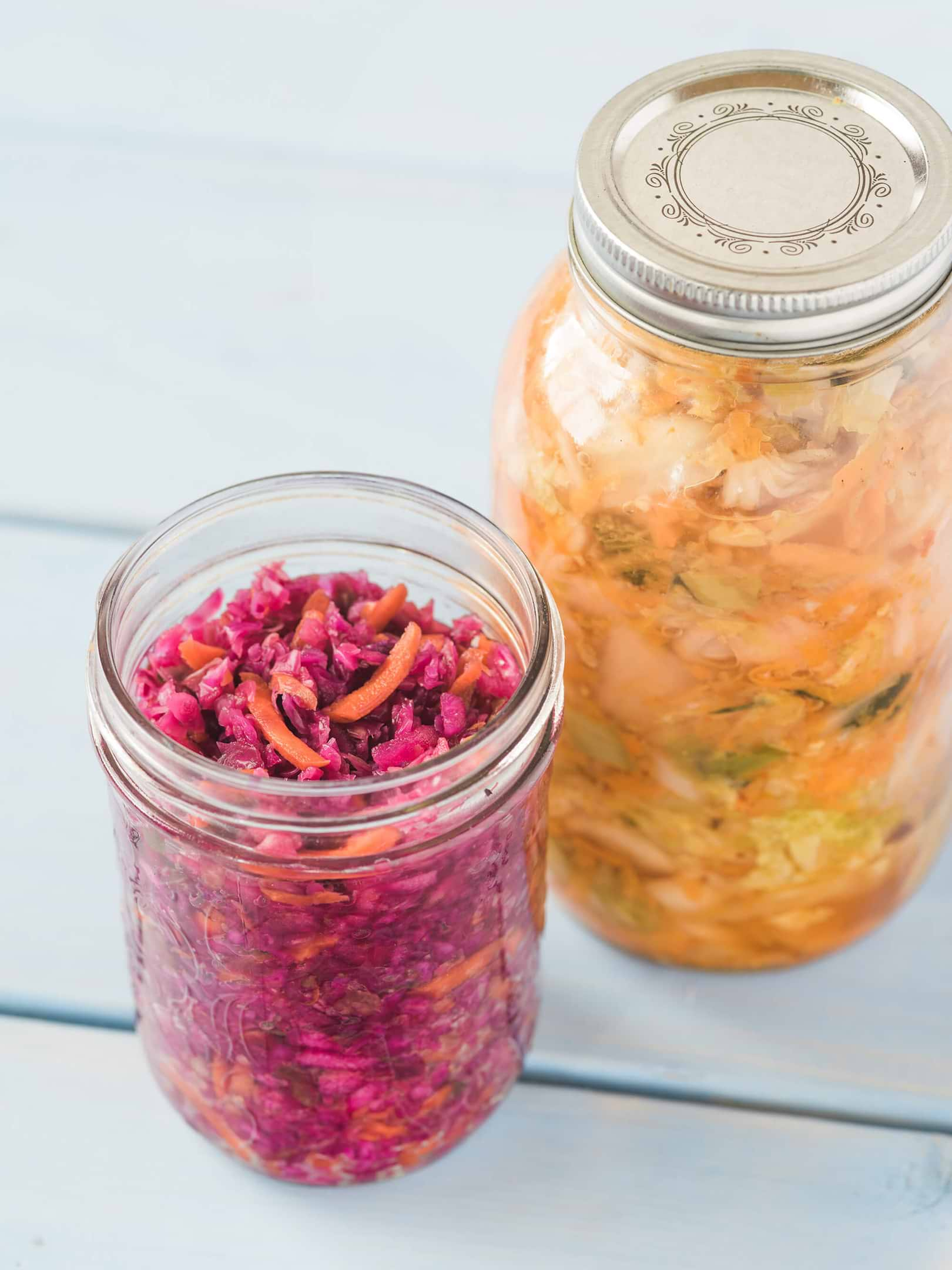
Fermented foods are your digestive system's BEST FRIEND. Your gut is home to trillions of microbes, known as the "gut microbiome". These microbes aid in the break down of food into waste and assist in healthy elimination. Your child's diet plays a major factor into what type of microbes live in their gut. If they eat a lot of sugar, refined carbs and processed foods, they will have a much less diverse set of friendly microbes and potentially undesirable microbes living in their gut as well. This can hamper gut health and slow things down.
Fermented foods nourish the gut microbiome and help the friendly microbes flourish.
I suggest you try adding sauerkraut to your child's dinner plate. You might be surprised to see they have a diverse palate when provided with the option. The earlier you can start on fermented foods, the better. I add fermented protein powder to baked goods and smoothies. Research has proven that probiotics and probiotic foods prevent constipation in infants and children which is why I give Vienna a daily probiotic and I've been doing this since she was a baby!
7. MASSAGE the tummy – the right way
I don't know any baby, toddler or child that wouldn't want a massage (or grown-up for that matter)! When Vienna is bloated or constipated, I get her to lay on our bed and I rub coconut oil on her belly in a circular motion. Just make sure you're massaging clock-wise to follow the natural flow of waste through the digestive system.
The other thing you can do which is a little more intensive and may provide a faster result is to rub 1 tablespoon of castor oil instead of coconut oil. Do not allow your child to ingest this – it's only for topical use.
Castor oil contains a fatty acid called ricinoleic acid that has laxative properties. It works like a charm for acute constipation but you really want to get to the bottom of the constipation as this is only a short-term solution. This works for babies too. As part of the massage, fold their legs in and bring their knees to their tummy and rotate in a circular motion. You can do this multiple times per day but only do the castor oil up to twice daily.
8. Reflexology
When Vienna was a few months old, I took a baby reflexology course at Toronto Yoga Mamas with her. In this class, I learned how to massage the bottom of her feet and stimulate the digestive system to help relieve constipation. I found this also worked very well for gas when she was baby too. This website has a great diagram that shows you how to do it. I still do this with her today if she gets a little backed up but fortunately, it rarely happens nowadays. The last time she was constipated was when she had the flu and a fever.
9. Eliminate problematic foods
This is a big one! Allergies and food sensitivities are very common in kids and adults alike. I didn't realize that I was sensitive to gluten and dairy until I was in my twenties. I can't believe I suffered for so long. If only I knew that gluten and dairy was the problem.
Dairy was a major culprit in my own constipation, as it often is for most people. If your child is constipated, cow dairy is the first food I would recommend you eliminate. There's research to support this as well and it's a well known fact that lactose intolerance is a direct cause of constipation. Dairy is a naturally binding food and which is why pediatricians recommend it when a child has diarrhea or loose stools.
Ear infections and eczema are also hallmark signs of a food sensitivity or intolerance. Sometimes however, constipation isn't only a sign of dairy intolerance. Sugar is another culprit of constipation because it slows down gut motility.
More often than not, constipation is very treatable with diet and healthy lifestyle changes.
You definitely want to avoid giving a child laxatives and stool softeners as they are not a long-term solution and may make the problem worse.
If you have any questions, please post them below!

Wishing you happy poops!
Joy xo
Hi, great article! My 4 month old has had constipation issues since birth. Doctor doesnt seem alarmed. I've been giving her 1/2 ounce of prune juice with her formula once a day and it does seem to help. What probiotic did you use for your little one when she was a baby? Thanks! Alison
ReplyPrune juice really is amazing. The sugars naturally present in prunes are a natural laxative, glad to hear you found something that worked. I gave Vienna HMF Baby when she was a babe. I just put it on a spoon with a touch of water. You could also put it into a bottle.
Thank you! This is all very helpful! Where do you begin with identifying a food sensitivity in a toddler? We introduced foods very slowly and watched carefully, but my daughter has always had some digestive issues and it's been very hard to tell what is going on. She eats incredibly well, and a varied diet but something just isn't right and I am really struggling to sort it out, despite help from a GI and ND.
ReplyHi Kim! I'm glad you found it helpful! The best thing to do is an elimination diet. Eliminate the suspect food for 2-3 weeks and then reintroduce it. It's truly the most effective way to identify a problem food. I would start with the most common offenders, dairy, gluten and soy. It can be tricky doing this on your own, so it may be wise to hire a Certified Nutritionist or an ND. You could also try a probiotic.
My little one LOVES smoothies! I should look into a fermented probiotic. What cup is your little one using in one of the pictures above?
ReplyHi Kate, it's the Lolla Cup. We love it! https://amzn.to/2r5s9JR